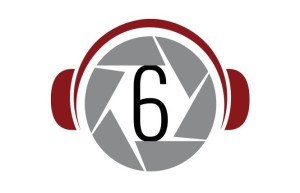Cars: Buying Used and Not Getting Screwed
6 min readSo you’ve found yourself looking for a car. Maybe you’re tired of the gas prices and hope to park the Suburban in favor of a Civic. Or maybe you’re like me and prefer not having a car payment to driving a new car. The majority of people buying used cars do so to save money, but aren’t prepared to really investigate before buying one. Unfortunately, this often ends in frustration when problems rear their ugly heads and cost the new owner sums that were not expected or prepared for.
To prevent buying an unwelcome bag of problems, you need to have a plan. First, figure out what your budget is and what kind of car you should buy. Figure out what you’re willing to pay for gas, maintenance, insurance, and other items such as tires (bigger tires cost more as do truck tires). You’ll end up at some compromise of utility, style, and economy.
Research
Now that you have a general idea in mind, it’s time to do some homework. When you’re looking for a reliable used vehicle, the number one thing you can do is research everything you can about the model you’re looking for. There are several useful tools on the Internet that will give you information about the car you’re looking at. MSN offers some basic reliability data, which options were available, safety data and fuel economy (autos.msn.com). Message forums give you access to thousands of people who already own the vehicles and can tell you what to look for (in fact, a quick search of the forum will most likely uncover several threads in which your questions have already been asked).
Once you’ve narrowed the field down to a few models, it’s time to start shopping. There are many avenues of finding a car these days – besides local ads, online ads and eBay have dramatically increased the market of cars available to us. Check out the following sites to get a start:
www.autotrader.com
www.autoweb.com
www.cars.com
www.thebiglot.com
On the Phone
You’ll no doubt be calling a lot of people to inquire about cars. As you explore the options and start making phone calls, be prepared to ask a lot of questions and take notes. Some questions you should ask:
– What condition is the body in?
– What condition is the interior in?
– When did you buy the car?
– How many owners has it had?
– How many miles are on it?
– Has it been in any accidents?
– Has it had any major repairs?
– Is there anything wrong with it now (big or small)?
– Does it have any rust?
– Do you have all your service records?
– Do you have the title?
Value
Get a feel for how to determine a car’s value. A good starting place is Kelley Blue Book’s website (www.kbb.com). It will give you an idea of the price range a car should fall in. As you spend time looking through classifieds (both local and online), you’ll start to get a feel for what specific cars are selling for. You’ll be able to quickly weed out the vehicles that are overpriced and pick out the exceptional deals. Just remember, unbelievably good deals are often attempts to unload a lemon.
Inspection Time
Before buying any used car, you should it checked out by someone knowledgeable. If you’re more mechanical than the average person, you’ll most likely want to check the car over yourself. I would suggest taking a toolbox to test everything you feel comfortable doing. If the person selling the car refuses to let you run your tests, walk away. Even if you don’t know all that much about cars, take a close look at everything and take notes about everything that seems to be questionable. Then ask someone car-savvy about your concerns. Some simple tests anyone can perform follow:
Oil: check the oil level and note the condition of the oil.
Transmission fluid: Check the level and note the appearance and smell of the fluid. If it smells burnt or looks brown (it should be red), there may be transmission trouble ahead.
Shocks/struts: check the shocks/struts by bouncing the front and rear of the car (push down on the bumper). The car should only bounce once – if it takes longer than that to settle in, the shocks/struts are likely in need of replacement.
Tires: visually inspect the tires. Make sure they are worn evenly across the tread – uneven wear could mean an alignment is in order or that other repairs are needed.
Leaks: look over the engine and under the car for signs of leaks.
Of course, there is much more than can be tested. These items are only a start and can be an good indicator of how well-maintained a vehicle is. If you’re seriously considering a car and don’t know anyone who can give the car a thorough inspection, you can take the car to an independent inspector who will give you a checklist of items and what he found during his inspection. These inspections can be pricey, but are well worth the price at $75-100 (AAA Auto Club offers this for example). Of course, you won’t be doing this on every car, just one or two that you are strongly considering purchasing. The results can also be used as a bargaining tool if a few minor things show up.
Check the vehicle’s history
Carfax (www.carfax.com) can provide you with a bit of history about any specific car you’re looking at. Many online ads require the seller to list the VIN (vehicle identification number) in the ad. This little bit of info can tell you whether or not your car has been the victim of flood damage, odometer rollback, or an accident which totaled the car. The report will also tell you the results of emissions inspections, whether the car has a lemon history, and what type of ownership the car has seen (business lease, rental agency, etc.). While you’re looking at cars, it’s a worthwhile investment: $24.99 gets you 30 days of unlimited Carfax reports. Keep in mind that mistakes are made and sometimes there are legitimate reasons for something that shows up in the report (I once found a Corvette that Carfax reported odometer rollback for. It turns out someone made a mistake or the guy managed to put over 100,000 miles on the car in less than a year when he had only put 10,000 on it in the previous 15 years).
Edmunds (www.edmunds.com) is a great place to look up general info about a car and read some reviews.
AllData (www.alldata.com) can also offer some insight into typical problems that vehicles have giving you a list of recalls and TSBs (Technical Service Bulletins). Don’t get overwhelmed by the amount of data given for a certain vehicle. Every car has its issues – you’re only interested in the severe ones.
The Finish Line
When it comes time to make the deal, be sure you have all the necessary paperwork. First and foremost, never buy a car unless the seller has the title – the only exception is if the seller still owes money on a car loan and the bank has the title. Second, I recommend filling out a Bill of Sale for your records regardless of whether or not it is required in your state. This provides an extra bit of protection in case something goes wrong. Make sure to include any special conditions or provisions on the Bill of Sale. To find out what forms are necessary, contact the appropriate office in your area.
The best advice I can offer is to be patient and listen to your instincts. Throughout the entire process, patience is key. People often buy impulsively and end up second-guessing their decision later. Finding the right car at the right price takes some time. Likewise don’t be afraid to walk away from a car to think about it or look around some more. Sellers often try to instill urgency in prospective buyers. Don’t give in to their pressure about other buyers, how great the car is or how many girls you’ll get if you buy their car.
Take your time, learn, and enjoy!






